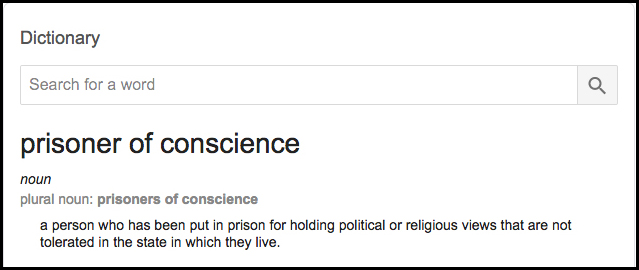
World Press Freedom Day is a chance to map challenges and celebrate the work of journalists working in highly censored parts of the world.
Grant funding, in particular, has been often used as a way to support independent media. But can money alone fix the problem of dwindling press freedom?
According to Gary Allison, chief executive, Prisoners of Conscience (POC), it is complicated. Money is critical but not the silver bullet, and there is a lot of work ahead.
POC provides direct subsistence grants and practical help to journalists when they are tortured, persecuted and forced to leave their country.
But what would it take to entirely transform the media landscape in a low press freedom country to one where journalists could lead safe and independent lives?
"It wouldn’t take just money, it would need huge press profile and public awareness as well," explained Allison.
"This is where I get disillusioned because, going back years now, Western governments have not promoted human rights around the world as actively and as loudly as they did in the past, and certainly not as much as they should.
"Secondly, there is the question of resources. If we could fund every POC in, say, the top 20 countries that we support, in other words, 1,000 human rights defenders in each country, we could really start making a difference.
"It would be a pincer attack, it would be organisations like us and others reaching enough people, combined with media and government pressure and noise to trumpet the injustices that are being carried out. That’s when you will see the real difference."

In 2018, the charity made 27 grants available totalling £18,000, a 440 per cent increase in successful applications over the last five years. For people like a Rwandan journalist who simply goes by the name Eric, it was life-changing.
Eric has received £8,000 worth of aid through POC over 18 months. Forced to move to a refugee camp in Uganda after criticising the government in Rwanda, he lived under the gaze of government spies and hitmen in the camp.
POC paid for him to live in a secret hut in suburbia before moving him to Brisbane, Australia. But this was an exceptional case, and while it makes for good reading, it is only scratching the surface.
"That was necessary to achieve a full transformation for himself and his family and to extricate him from that appalling situation he was in. Our standard grants are £500 so we had to spend at least 10 times more to meaningfully transform someone's life," explained Allison.
"A journalist who has been persecuted and become a refugee, it might take anywhere between one to five years before their family can join them. By that point, they need up to £3,000 for flights, DNA tests, and legal fees to be reunited.
"The £18,000 is tiny if you want to start transforming the lives of journalists who are having to flee their countries and leave their families behind."
Because of this, Allison says that they are only reaching a fraction of the need of people like Eric.
"Our biggest barrier is that, as an organisation, we have been in existence for decades and yet not as many people in the general population have heard of us, as they have of Amnesty International, for example.
"That’s a travesty because we have an enormous level of need and we need to increase our income from about £300,000 a year to close to £4m a year to transform their lives.
"There are thousands of brave people whose voices need to be kept alive, through organisations and human rights charities. By keeping people's voices alive we will create a better world economically, and also bring peace. It’s urgent we do so, country by country," he concluded.
POC also created a quiz for World Press Freedom Day for you to test your knowledge of the regimes which silence journalists.
Free daily newsletter
If you like our news and feature articles, you can sign up to receive our free daily (Mon-Fri) email newsletter (mobile friendly).
Related articles
- Protecting independent journalism, with Lexie Kirkconnell-Kawana of IMPRESS
- Why Australia's bid to make big tech pay for news failed: views from an indie publisher
- Predictions for journalism 2024: independent, local news and media startups
- Predictions for journalism 2024: misinformation, online safety and press freedom
- The Bristol Cable targets £60k of funding in new membership drive









